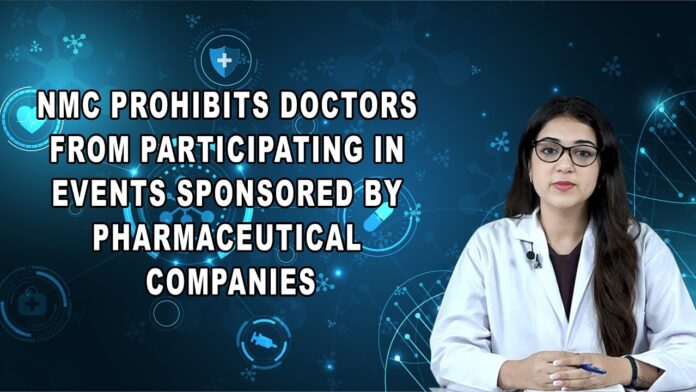No cocktail dinners at 5-star hotels? NMC bars doctors from meets sponsored by pharma cos
Medical conferences in five-star hotels with cocktail dinners and cultural extravaganza might become a thing of the past with the National Medical Commission’s new regulations barring doctors’ involvement in any seminar, workshop or conference “which involves direct or indirect sponsorships from pharmaceutical companies or the allied health sector”. The maximum punishment for violation of these regulations is suspension of licence for three months.
Section 35 of the new professional conduct regulations also bars doctors and their families from taking consultancy fee or honorariums from pharmaceutical companies or representatives.
The rules also bar them from taking consultancy fee or honorariums from “commercial healthcare establishments, medical device companies, or corporate hospitals under any pretext”.
After a provision in the regulations from the time of the erstwhile Medical Council of India (MCI) banned doctors and their families from taking gifts, travel facilities or hospitality, many companies had drawn up contracts with doctors to pay them for giving lectures and taking workshops and for being on their board. Doctors declared income from such honorarium and consultancy. Several corporate hospitals too drew up contracts with doctors to send them patients and paid them for it by calling it ‘facilitation fees’. Many doctors made more than their salaries through these ‘consultancies’ with pharma and medical device companies and through such ‘facilitation’ fees. The new regulation appears to have closed this loophole. Doctors can now receive money from these commercial entities only as salaries and benefits as employees of these organisations.
The MCI had similarly banned all gifts to doctors by pharma companies in January 2010. However, after vehement protests by doctors, on the pretext of quantifying punishments, the regulation was later diluted to allow gifts up to Rs 1,000 and the restriction on travel was diluted by stating that a doctor could not accept travel facility to conferences, seminars, workshops “as a delegate”. Soon many doctors were being shown as faculty rather than delegates, so that their travel could be paid for. Whether the new tough looking regulations get similarly watered down later remains to be seen.
The new regulations state that doctors should be aware of conflict-of-interest situations that may arise and that “the nature of these relationships should be in the public domain such as clinical drug trials and should not be in contravention of any law, rule, or regulation in force”.
“These regulations are definitely an improvement over the MCI regulations in preventing doctors from taking bribes/inducements from pharma or medical device companies and other commercial entities. For example, the regulations aim to close a loophole which was widely being used under the MCI code whereby doctors could receive illegitimate payments from pharma companies when routed via a consultancy or honorarium. However, everything is condensed into one paragraph, leaving many things vague.
“There should have been more detailed provisions spelling out how regulations would address various aspects. The part about disclosure of relationships is very weak. There should have been details about how doctors need to disclose what funds they get, the purpose of funding and where this information would be made publicly available, ideally in a portal or website,” said Malini Aisola of the All-India Drug Action Network



